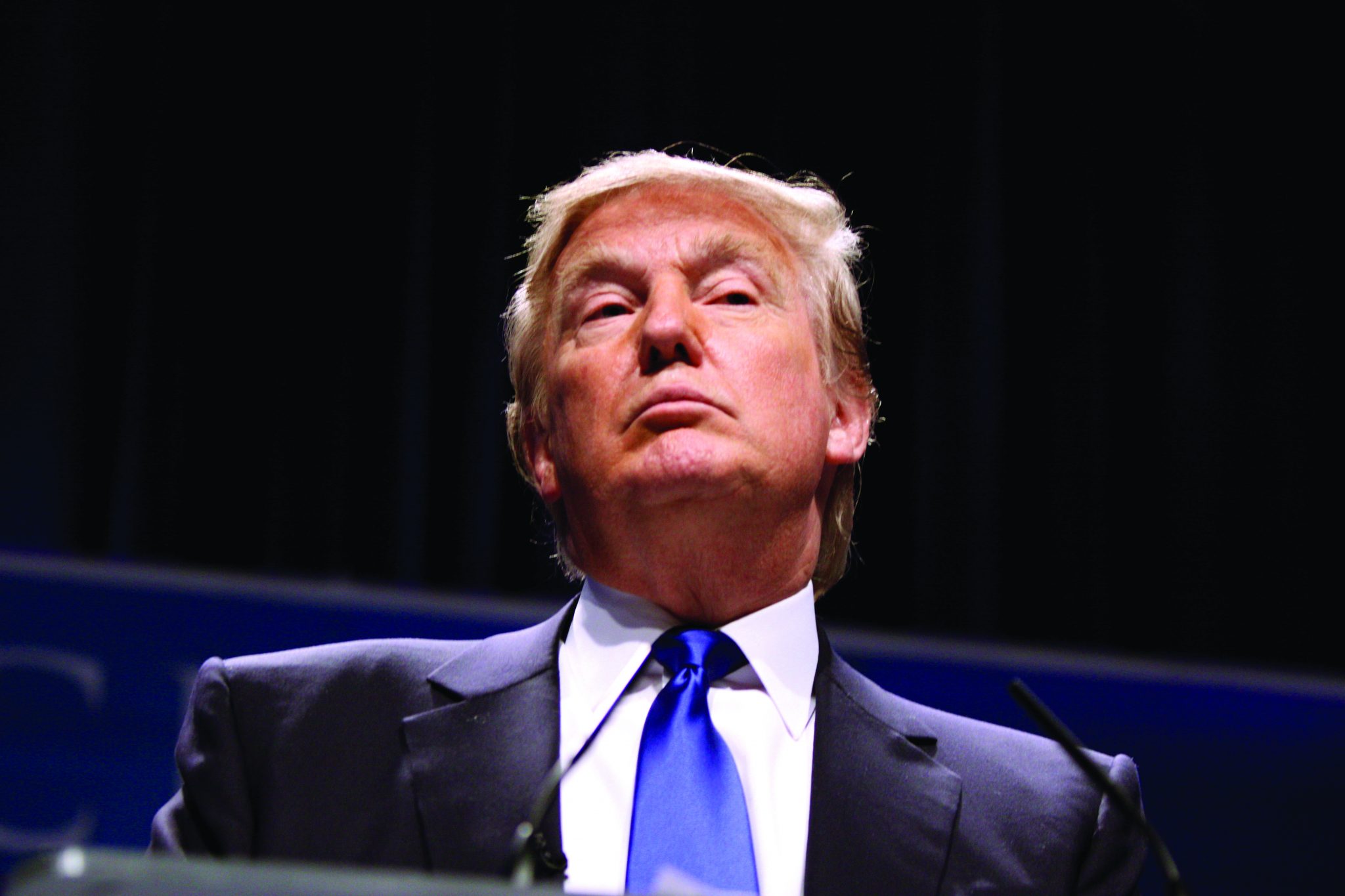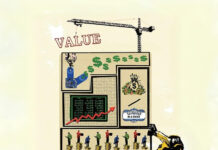The man whose victory seemed unimaginable was suddenly President-elect of the United States of America. President-elect Donald Trump has started to constitute his new government and outline his policies, crushing the hopes of those who argued that exaggerated pre-election rhetoric would be tempered by post-election reality.
“I will be the greatest jobs president that God ever created.”1
On November 9th 2016, America and the world woke up still shell-shocked and in disbelief about the results of the previous day’s US election. The man whose victory seemed unimaginable was suddenly President-elect of the United States of America. Nobody had really seen it coming, and few were ready to believe it – supporters and opponents alike. But by now reality has started to set in, with the Electoral College confirming Trump’s victory. The President-elect has started to constitute his new government and outline his policies, crushing the hopes of those who argued that exaggerated pre-election rhetoric would be tempered by post-election reality. As it is, Donald Trump simply continues to be himself exactly the way we know him from the campaign: issuing statements that reflect the rather simplistic and therefore often worrisome worldview of which we have already had a preview in an 1981 interview in People magazine when he said “Man is the most vicious of all animals, and life is a series of battles ending in victory or defeat.”2
So, who is the man whose unbridled and often offensive and unfounded rhetoric elicits blind devotion from a significant part of the US population, and who has already managed, a month before being sworn in as president, to offend one of the world’s leading powers? And what can we expect of him once on the national stage, with the reigns of power firmly in his hand and subject to all kinds of pressures, external and internal? Who is the man whose every single decision will carry far-reaching consequences for millions of people?
The best person to answer these questions is Donald Trump himself: “One thing about television, it brings out personality. People are able to watch me in action. They hear my voice and see my eyes. There’s nothing I can hide. That’s me. Television brings out your flaws, your weaknesses, your strengths, and your truths.”3 With these words in mind, we will examine in this article how Donald Trump communicates, what it discloses about his deep-seated drivers and motivation and what the world can expect to see from him in the coming months and years.
“The Beauty Of Me Is That I’m Very Rich.”4
In 1971, psychoanalyst Heinz Kohut5 first described what he called the narcissistic personality. Only a qualified mental health diagnostician can diagnose whether someone suffers from Narcissistic Personality Disorder (NPD) after extensive tests and personal interviews. However the overwhelming amount of symptoms as well as visual and textual evidence created a consensus among mental-health professionals that Donald Trump suffers from narcissistic personality disorder (NPD).
Narcissism is a disorder of the personality, documented by the Diagnostic and Statistical Manual of Mental Disorders (DSM-5)6 of the American Psychiatric Association, and widely used to diagnose mental conditions. One of the foremost traits of highly narcissistic people is that they are constantly trying to draw attention to themselves, and have an almost exclusive sense of self-reference and entitlement in every context. Donald Trump certainly fits the picture: when in the summer of 1999, he spoke at his father’s funeral, Trump’s main message was how Fred Trump’s greatest achievement was having raised a brilliant son.
People with strong narcissistic needs see themselves as special, brilliant, powerful and grandiose and need desperately to be admired by others. They believe they are chosen to have a special status or a destiny to fulfill. They perceive themselves as genuinely superior to others whom they see as insignificant and disposable. For that reason, narcissists are often boastful of their skills, possessions or “friends in high places”. Donald Trump exhibits limitless self-confidence that often borders on arrogance, and never stops expressing how much he considers himself superior to others, boasting and bragging about the great things he has done, as well as his skills and abilities on every occasion7 “I was a great student. I was good at everything” and “My IQ is one of the highest — and you all know it! Please don’t feel so stupid or insecure; it’s not your fault”.
According to psychoanalyst Heinz Kohut,8 narcissism originates very early in life. When parents and caregivers don’t give children sufficient praise and affirmation, children grow up with a fundamental underlying insecurity about their capabilities and strengths. The result is a lifelong search for confirmation of how great and special they are. As the fourth of five children (with two of his older siblings today a banker and a judge), and even though his family was described as loving and materially secure, we can safely assume that there was not much attention left for the young Donald who probably had to exert constant effort to get attention from his parents and stand out being at least as good as – if not better than – his siblings.
With his father looming, larger-than-life (being the very example of the success he himself sought to be), Trump’s lifelong goal became to be number 1. At his high school, the New York Military Academy9 he was the most competitive boy in an already extremely competitive environment, striving to be the best athlete and to be most successful, career-wise. The symptoms of Narcissistic Personality Disorder were clearly in place at that time.
Narcissists show a deep-seated lack of concern, empathy or pity for the suffering and feelings of others and feel justified when they manipulate and exploit “lesser” others emotionally, physically and/or sexually. One only needs to think of the famous off-camera remarks recorded by the Access Hollywood show in 2005, on which we can hear Trump say: “When you’re a star, they let you do it. You can do anything… Grab them by the p***y… You can do anything.” Another example is the disrespectful way he talked about a handicapped journalist or the parents of a fallen US soldier.
One way narcissists deal with opponents who might be dangerous to them is to defy and demean them, the way he did when describing his Republican rival Carly Fiorina in Rolling Stones Magazine:10 “Look at that face! Would anyone vote for that? Can you imagine that, the face of our next president?” Another tactic narcissists have is to attribute to others what they refuse to see in themselves. Sigmund Freud has identified early on the different ways human beings deal with thoughts that upset them or are unacceptable to them, and has given them the name of psychological defense mechanisms. Trump’s favorite defense mechanism is projection, whereby a person ascribes unbearable negative feelings about themselves to others. Trump accused his opponent of criminality when she was not found guilty of anything while he was suspected of various ethical business violations and malfeasance. He also deflected his own extensive record of sexual improprieties by accusing Bill Clinton of being the most abusive person to women “in the history of politics in this nation”.
Another favourite way of Trump to counter his opponents is litigation. At the time of the election, he had 75 pending lawsuits alone, out of the more than 4000 he was involved with during the past 30 years. And while in his campaign arguments he often presented himself as the protector of the “little men” who always lose out to the powerful ones, he himself has no hesitations reacting to small disputes with overwhelming legal force and using his wealth against adversaries with limited resources, such as homeowners. He is also known for refusing to pay the fees he owes to real estate brokers, lawyers and other vendors.
The Dark Side…
Given the above, there are some justified worries about what kind of leadership and decision-making style Trump will bring to bear as commander in chief and possessor of the nuclear launch codes. Let us look at those worries, but also at the possible brighter side of his leadership capabilities.
Because narcissists are fundamentally insecure, they have a need for complete and total control of others, and will go out of their way to maintain it. And what better way to maintain tight control over one’s staff than putting one’s “clones” into key positions? Trump’s initial appointments to his new government – older, white males, with little government experience – do not augur well for the emergence of divergent opinions, independent thinking and expertise, or distributed leadership. Nor does the Republican majority in the House and Senate for that matter. What is clear is that Trump intends to be the one and only who calls the shots. As described by Justin Frank, referring to Trump’s boast that he consults primarily with himself on foreign affairs: “He’s not interested in hiring anybody smarter than himself because […] he’s paranoid enough that he wouldn’t want anybody smarter.”11
Like most people with NPD, it is very difficult for Trump to listen to others, as every divergent opinion will cast doubt over his own capabilities, and he knows unconsciously like most narcissists, that self-doubt would destroy his fragile and carefully constructed ego. Therefore we are most likely to see a president with an autocratic decision making style, seconded by a selection of yes-men hesitant to contradict him, as the conversions of Paul Ryan and Mitt Romney, from Trump critics to loyal fans so worrisomely indicate. His closest advisor, Kellyanne Conway’s statement about him does not bode well either: “What Donald Trump decides, [I] and the others will accept.”12
Another worrisome matter is Trump’s lack of impulse control and his compulsive need to share any fleeting idea or surge of anger and annoyance, or just any immediate reaction to something he sees or hears. With around 17 million followers on Twitter he considers that having a Twitter account is “like owning the New York Times without the losses”. And while the Twitter situation has raised concerns before, many see it as a ticking time-bomb today: with one tweet Trump managed to create a conflict with China, cause Boeing stock to fall and unleash a series of threatening calls to the home of a union leader who had called him a liar.
…and the Brighter One
While all of the above are clearly cause for concern, Donald Trump also possesses certain traits that are essential to effective leadership, in business as well as politics.
Vision and hope: having a clear vision is essential for leaders to convince people to follow them. Leaders who express a clear vision are giving followers the hope that together they can move toward a better future. Donald Trump’s speeches are centred around a very attractive goal – “make America great again” – and he does not hesitate to express a bold vision for his presidency: “American cars will travel the roads, American planes will soar in the skies, and American ships will patrol the seas. American hands will rebuild this nation […] Jobs will return, incomes will rise, and new factories will come rushing back to put our shores.”13 What is left to see is whether this attractive vision can be implemented.
Courage and decisiveness: contrary to president Obama, who was seen by many as an indecisive and dithering leader, Trump comes across as bold, energetic and passionate in pursuing his goals by issuing statements like “Get in, get it done, get it done right, and get out.”14 And while Donald Trump can often be perceived as arrogant and reckless, the fact that he has the guts to rush to where others fear to thread while oozing self-confidence makes it entirely credible to his supporters that he will walk the talk.
Authenticity is one of the most important leadership traits for attracting followers. Human beings are highly sensitive to whether the person they have in front of them is genuine or a phony. Donald Trump comes across as entirely authentic in the sense that he consistently says what is on his mind in a very simplistic manner. This “straight shooter” style, repeating the same message again and again, creates trust in many Americans, just as Hillary Clinton’s polished way of expressing herself, and WASP-ish manners can be perceived as a lack of authenticity and trustworthiness. Trump followers see his passionate style, as opposed to Hillary Clinton’s cool and rational demeanor as a sign that Trump will really make things happen.
Between Hope and Despair
What conclusions can we draw from the above analysis of Trump’s personality traits and what possible clues does it provide about his leadership style as the next president of the United States?
So far, Donald Trump’s basic personality traits suggest a president likely to be highly passionate, sometime explosive and often unpredictable. As a charismatic personality, he will most likely be able to rally strong support for his cause from dedicated followers, who are willing to go out of their way for him. He could prove to be an aggressive and highly risk-taking decision maker, whose main focus is on “making American number one again”, independent of how the rest of the world relates to this. Hopefully he will be conscious of the human, economic, political or environmental costs at stake and feel the weight of the enormous responsibility his every act and statement carries as leader of the world’s greatest economic and political power, and the long-term – possible irreversible – damage he has the power do in a single second to the safety, peace and health of our entire planet and its inhabitants.
[/ms-protect-content]
About the Author
 Dr. Katharina Balazs is associate professor of management at the European School of Management (ESCP Europe) in Paris, France, and executive coach with the INSEAD Global Leadership Center in France and Singapore. Katharina’s expertise is in leadership, focussing on women leaders, leadership communication, power and influence, high performance teams and organisational change.
Dr. Katharina Balazs is associate professor of management at the European School of Management (ESCP Europe) in Paris, France, and executive coach with the INSEAD Global Leadership Center in France and Singapore. Katharina’s expertise is in leadership, focussing on women leaders, leadership communication, power and influence, high performance teams and organisational change.
*Disclaimer: The views expressed in articles are the authors’ and not necessarily those of The European Business Review.
References
1. http://www.chicagotribune.com/news/nationworld/politics/85852305-157.html
2. http://people.com/archive/in-the-manhattan-real-estate-game-billionaire-donald-trump-holds-the-winning-cards-vol-16-no-20/
3. https://www.brainyquote.com/quotes/authors/d/donald_trump_2.htmlIn
4. http://www.cbsnews.com/pictures/wild-donald-trump-quotes/29/
5. Kohut, H., The Analysis of the Self, New York: International Universities Press, 1971
6. Diagnostic and Statistical Manual of Mental Disorders: Fifth Edition, American Psychiatric Association, 2013
7. What Donald Trump supporters need to know, but are too infatuated to find out, https://books.google.fr/books?id=AuGbDQAAQBAJ&dq=“I+was+a+great+student.+I+was+good+at+everything%22+trump&hl=fr&source=gbs_navlinks_s
8. Kohut, H., The Analysis of the Self, New York: International Universities Press, 1971
9. Blair, G.: The Trumps: Three Generations of Builders and a President, Simon & Schuster, 2001
10. http://www.rollingstone.com/politics/news/trump-seriously-20150909
11. http://www.huffingtonpost.com/bill-blum/the-psychopathology-of-do_1_b_11286500.html
12. CNN, 28.11.2016
13. http://www.realclearpolitics.com/video/2016/09/15/trump_american_hands_will_rebuild_this_nation.html
14. http://www.businessinsider.com/donald-trump-i-have-a-spat-with-obama-2012-9?IR=T


































